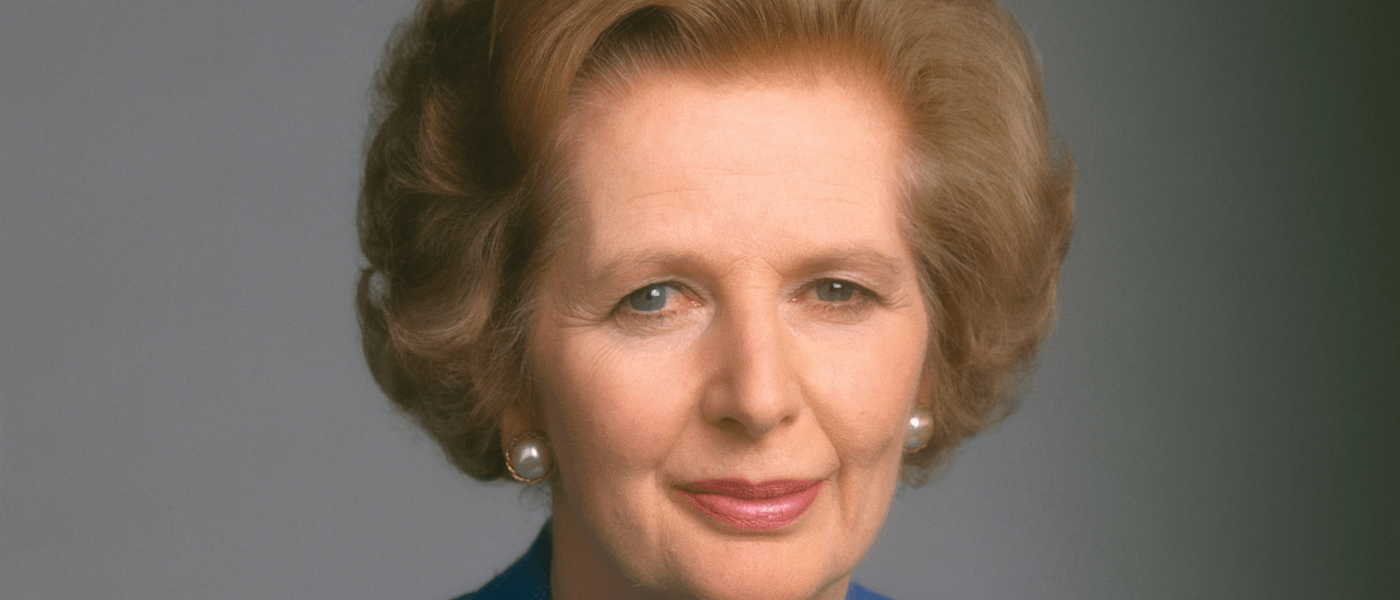Margaret Thatcher, Britain’s first and only female Prime Minister, died this morning at the age of 87.
Most blogs and news sites have spent the better part of the morning throwing up memorials celebrating the “Iron Lady” – they speak of “political toughness” and her “battling Communism” alongside her American conservative ally President Ronald Reagan. Outpouring of sympathies are coming in from likely places, like President Obama, Former PM Tony Blair, Senate Republican Leader Mitch McConnell, House Speaker John Boehner, even Henry Kissinger. All in all, the news cycle is going to be dominated by the “great Briton” Margaret Thatcher.
I’m understanding of Thatcher’s significance – no one can deny that she shaped what Conservatism in Britain is, but lets pump the brakes a little bit. Some of the dissenting opinions on Thatcher’s legacy are being lost in the sea of glowing praises of people who were disconnected entirely from Thatcher’s rule.
Gerry Adams, Sinn Fein leader, comments on the passing of Margaret Thatcher:
“Margaret Thatcher did great hurt to the Irish and British people during her time as British Prime Minister. Working class communities were devastated in Britain because of her policies.”
Her privatization of nearly all the publicly-held utilities and services has proven to be a prolonged disaster. Thatcher’s tough stance against unions resulted in the collapse of one of their biggest industries, coal, during her tenure and also devastated over 150 different mining communities spread throughout Britain. Mr. Adams is simply speaking from first-hand accounts, not reciting laudatory phrases from some conservative history book like many of those, especially in the United States, who have no connection to Thatcher’s government.
“Her role in international affairs was equally belligerent whether in support of the Chilean dictator Pinochet, her opposition to sanctions against apartheid South Africa; and her support for the Khmer Rouge.”
No denying this – here is where the United States and Great Britain bonded over the last quarter century. Sometimes, in the course of politics and history, you back the wrong horse. It happens. But Thatcher’s steadfast support of Augusto Pinochet throughout her life was disgusting. This is a man who overthrew a democratically-elected government in Chile (with the help of western powers, especially the United States under the previously mentioned Kissinger), killed political opponents (upwards of 3,200), and tortured thousands of his own citizens. But, in 1999, under house arrest after being indicted for these human rights violations, Margaret Thatcher visited the dictator and thanked him for “bringing democracy to Chile.” This wasn’t a mistake – this woman actually believed that Pinochet was just advancing democracy and freedom in South America.
Of course this is all linked to her undying love of the imperialistic history of Britain, which culminated in the Falklands War. She also refused, beyond small concessions, to oppose apartheid in South Africa, going as far as calling the African National Congress “terrorists”. This included supporting the decision to have British Special Forces, the SAS, train the Khmer Rouge-led militias in Cambodia and supply arms through China to the regime. Great Britain lobbied for a $12M food program to benefit Cambodia, which instead was funneled to about 30,000 Khmer Rouge guerrillas Of course, after all that the Khmer Rouge did came to light, it changed Thatcher’s tune, right? Wrong, she publicly backed Khmer Rouge officials, saying that “the more reasonable ones in the Khmer Rouge will have to play some part in a future government.” Up until her death, Thatcher offered no remorse about indirectly prolonging a genocide half a world away. She didn’t just fall on the wrong side of history: she was consistently a champion for the moral wrong.
Throw in the Bobby Sands hunger strikes and the struggles in Ireland, and you have a complicated legacy. But that is not what you’ll hear on CNN today. It is not what you’ll read on Fox News’ webpage. You’ll get the only thing people have to give: she was tough and independent. She was a great politician and an excellent role model for women. Those things are all true, but they aren’t entirely good. Dictators are tough. Independent thinkers are often blind to reality. Politicians are corrupt. I’m not saying that there was no good in Margaret Thatcher, and I’m certainly not saying that her death isn’t insignificant. I’m just saying that if you want to celebrate her life, you also have to come to terms with some of the skeletons. There is no perfect person out there – we all make mistakes, but it is how we atone for them that truly shows character.



